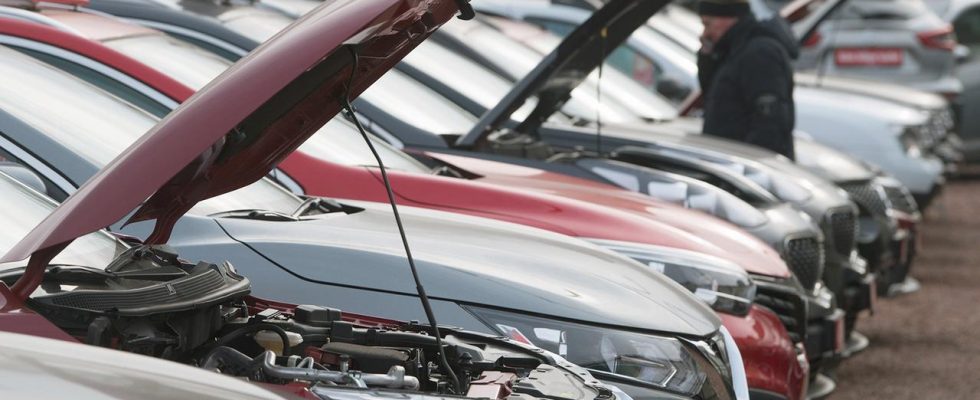fact finder
The EU prohibits owners of older cars from carrying out repairs and even wants to expropriate them in order to make billions in profits and promote electric cars. However, there is almost no truth to the claims circulating on social media.
“The EU wants to ban the repair of all vehicles that are older than 15 years” or “expropriation of cars in the name of climate protection,” say some posts and contributions online. The alleged source: A proposal from the European Commission New regulations for the recycling of vehicles as well as the electric vehicle regulation.
As early as July 2023, the EU Commission recommended new regulations for the disposal of end-of-life vehicles in order to improve their collection, recovery and recycling. The export of unroadworthy vehicles that pose a threat to the environment and health is also intended to be prevented. End-of-life vehicles are expressly defined as those that have become waste within the meaning of the Circular Economy Act.
Encourage repairs, not prohibit them
A ban on repairs is not mentioned there. Adalbert Jahnz, spokesman for the European Commission, told the AFP agency that there was nothing in the proposal that would prohibit repairs on cars older than 15 years or on cars of any other age. Rather, some of the proposed orders would be aimed at supporting the repairability of cars.
However, another component of the draft caused irritation: it contains a Series of recommendations, according to which the repairability of a vehicle is to be assessed. However, this does not mean that a car is automatically considered an end-of-life vehicle to be disposed of if it does not meet these requirements. Rather, there must be an individual decision in each case:
If one of these conditions is met, an individual technical assessment is carried out to determine whether the technical condition of the vehicle would be sufficient to obtain a test certificate in the Member State in which the vehicle was registered before repair.
What is an end-of-life vehicle?
Specifically, this means that a car that can no longer be registered due to technical defects must be disposed of properly. But the text also contains Suggestions for criteria according to which a car is to be considered an end-of-life vehicle – among other things, if it has burned out or the owner can no longer be identified, but also if the deadline for the general inspection has been exceeded for more than two years. The last point in particular sparked criticism.
According to the German end-of-life vehicle regulations that already apply today, such vehicles must then be handed over to a recognized collection point, a recognized take-back point or a recognized dismantling company, otherwise there is a risk of fines.
However, there are extensive exceptions for historic vehicles, i.e. those that were first brought into circulation at least 30 years ago and are in a good state of preservation. According to the Federal Motor Transport Authority, almost 800,000 vehicles fell into this category in 2023.
There is already an obligation to dispose of old vehicles in Germany.
The motor vehicle trade has concerns about the right to repair
In fact, the EU Commission was initially planning to expand the repair options for vehicles, initially by law. However, cars were excluded from the compromise that has now been reached on the right to repair, although the lead rapporteur René Repasi had expressly advocated including them.
There was criticism of this from the motor vehicle industry itself: The planned regulation would question whether one could make a profit from repairs and thus endanger the existence of the industry, it was said. The EPP Group’s internal market policy spokesman, Andreas Schwab, also pointed out that there is already a functioning repair market in the automotive sector.
The ominous 15-year obligation
But where does the claim that the repair of all vehicles older than 15 years should be banned come from? Emma Babin, an environmental and energy lawyer at the French law firm Gossement Avocats, told AFP that “this 15-year period does not appear in the text.”
One possible explanation: The EU Commission writes about their electric vehicle regulationsthat the average lifespan of a car is 15 years. This was apparently interpreted to mean that the EU stipulates that cars have an end of life, meaning that older vehicles can no longer be repaired and can no longer be resold. However, it also says: “The regulations do not affect existing cars. If you buy a new car now, you can drive it until the end of its life.”
“NOTHING in this proposal prevents a car owner from having his or her car repaired, regardless of the age of the vehicle,” writes the German EU representation on Facebook.
The EU draft on end-of-life vehicles currently has no legal force anyway: the member states and the EU Parliament can still propose changes. The Parliament and the EU Council then have to vote on the final draft.

